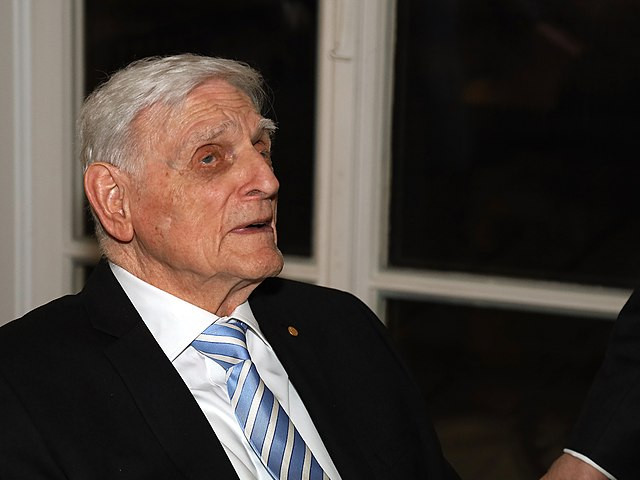John B. Goodenough, a Nobel laureate and a pioneering figure in the development of lithium-ion batteries, died on Sunday, June 25, just one month shy of his 101st birthday. The American scientist was a leading figure in scientific research throughout his career, contributing significantly to advancements in energy storage technology.
Born on July 25, 1922, in Jena, Germany, to American parents, Goodenough moved to the United States in 1923. He completed a bachelor's degree in mathematics at Yale University, and later received a master's and a PhD in physics from the University of Chicago. His career led him to positions at the Massachusetts Institute of Technology and the University of Oxford before he became a faculty member at the University of Texas at Austin, where he served for 37 years.
At the age of 97, Goodenough received the 2019 Nobel Prize for Chemistry for his research into lithium-ion batteries, making him the oldest recipient of a Nobel Prize. His work on this rechargeable battery has laid the foundation for wireless electronics, including mobile phones and laptops, and has played a crucial role in enabling a world less dependent on fossil fuels by powering electric cars and storing energy from renewable sources.
Goodenough's groundbreaking work began in the 1970s and led to the development of the first practical rechargeable lithium-ion battery. His research on the use of lithium cobalt oxide as a cathode material greatly enhanced battery performance and energy storage capacity. His team's discovery of lithium ions shuttling between the cathode and anode of a battery enabled efficient and reversible energy storage. Goodenough also explored different materials, such as lithium iron phosphate and lithium manganese oxide, which further improved battery performance.
In more recent years, Goodenough and his university team delved into new directions for energy storage, including a "glass" battery with a solid-state electrolyte and lithium or sodium metal electrodes. Goodenough was also an early developer of lithium iron phosphate (LFP) cathodes, a more sustainable alternative to nickel- and cobalt-based cathodes. LFP is rapidly becoming more popular in electric vehicle batteries due to its lower cost and the abundant and sustainable nature of its materials.
Goodenough's advancements in lithium-ion battery technology have had a profound impact on a wide range of industries, including consumer electronics, electric vehicles, and renewable energy storage. His work paved the way for the development of lightweight, high-energy-density batteries that power modern devices and contribute to the transition to cleaner energy sources. His research and innovations in battery technology have had a transformative impact on society, enabling the proliferation of portable electronics and advancing the shift toward more sustainable energy solutions.
Throughout his career, Goodenough's accomplishments have been widely recognized. In addition to the Nobel Prize, he has received numerous prestigious awards, including the National Medal of Science, the Japan Prize, and the Enrico Fermi Award. His work exemplifies the power of scientific inquiry and its potential to shape our modern world. As a testament to his lasting impact on the world, perhaps nobody ever had a more fitting name than "Goodenough".
John B. Goodenough's passing is a significant loss for the scientific community and the world at large. His legacy lives on in the countless devices powered by the technology he helped to develop, transforming the way we live, work, and communicate. His tireless pursuit of knowledge andinnovation will continue to inspire future generations of scientists and engineers.






